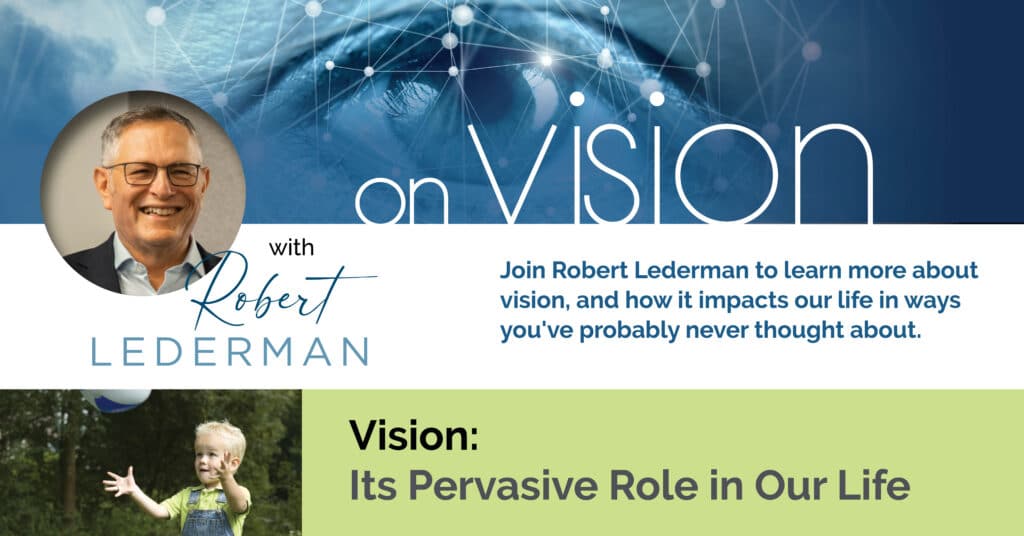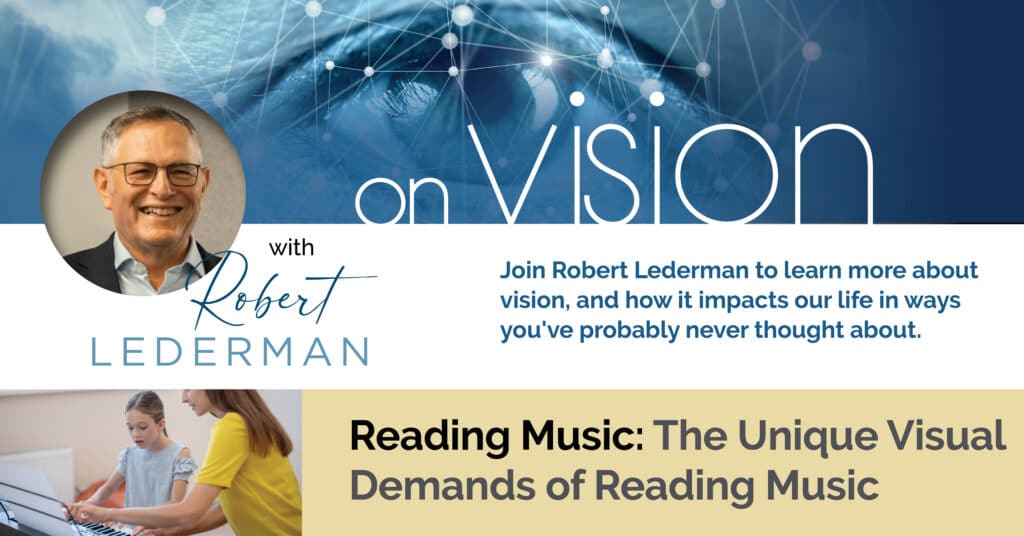Music Teachers
“Probably more intermediate piano students give up their piano study because of reading problems than for any other single reason. People don't give up activities that they enjoy. But if each piece presents a learning prospect to be dreaded, the result is predictable. We should not be surprised that the country is overrun by millions of people who 'used to play the piano,' but who now cannot pick out a single-note melody at the keyboard.”
Giles, A. (1983). Reading music not notes. Clavier, 17 (8), 31-32
What they’re saying
Are your students struggling to read music? It might be because of an issue with their vision, even though they have 20:20 eyesight.
When it comes to vision, the crucial question for music students is straightforward: Is their visual system efficient enough to handle the demands of reading music? We’ll delve into the specifics of these demands shortly, but it’s important to note that simply knowing a student’s visual acuity (e.g., 20/20 or 6/6) doesn’t provide a complete answer to this question.
Why isn’t 20:20 eyesight enough?
Let’s assume that someone with 20/20 eyesight can clearly see the note on the page. They can see if it is a half-note, quarter-note etc. i.e., what type of note it is. However, they also must be able to see where the note is on the stave. Each note has a “what” and a “where” aspect associated with it. Prior to identifying what the note is, you need to understand where it is on the page, and then direct your eyes to it. You also need to understand where the note is positioned on the stave. To do this, you need to be able to see more than just the note.
You actually need to see the note and an area of space around it, a skill known as central/peripheral integration. If you can only see the note but not the surrounding area, you would know its value, but not what note to play.
Seeing is something we do!
When your students read music, they need to point both their eyes with great precision at the same place on the page (eye teaming) and they need to keep the image clear (eye focusing). The information is imaged on the back of the eye (the retina) and is then sent to the brain to be interpreted (visual processing).
When their brain finally makes sense of all that information, they “see” it. Essentially, we see with our brain but gather the information with our eyes. Next, they need to be aware of the next note, or group of notes, off to the side, and then they need to move both of our eyes together to the next note (eye-tracking). In fact, seeing is something we do! And we do much more with our visual system than just see small from far. Just read some examples of how life-changing improving these skills can be here.

Watch this eye-opening video
Janice Cook, a Nationally Certified Music Teacher, sheds light on helping students overcome vision challenges. Start empowering your students today!
So, what is 20:20 Eyesight?
Your student went for an eye examination and was told that they have 20/20 eyesight. What does that mean? It means that they can see small details from far away.
The chart used to conduct this test is called a Snellen chart. These days it might be projected onto a screen or be presented on a wall-mounted computer screen. The test was designed in 1862 by Herman Snellen, a Dutch Ophthalmologist.
A Snellen Chart
The Snellen chart reveals to the examiner how small you can see from far. That’s it. You might be checked with and then without glasses, but the chart is always revealing how small you can see from far. However, you know well that most musicians are not reading music from some far distance. Music students are reading music that on average is about 75cms away.
What can you do to help?
So, what can you do to help your clients unlock their full potential? If you suspect that your client is grappling with visual challenges, recommend a visit to a board-certified developmental optometrist. For a list of signs and symptoms, refer to our Vision Therapy Page.
Not every optometrist specializes in developmental optometry, so we’ve made it convenient for you to locate the nearest one here. A developmental optometrist will evaluate how well your student manages to meet the visual demands of reading music. They may prescribe glasses specifically for reading music and may recommend optometric vision therapy.
Optometric vision therapy is a supervised program to enhance vision skills, including eye teaming, eye tracking, and eye focusing, while improving visual processing. To understand more about how vision therapy can improve life visit this page.
Want to learn more from an expert?
Book Robert Lederman for your next meeting, whether it is live, hybrid, or an online seminar. Learn from one of the best in the field about the visual demands of reading music and how you can empower your students to address these issues fully.
Transform your next event with a captivating lecture from Robert Lederman
Contact us at the office today and find out more about his live presentations and webinars on the critical role of vision in our lives
I am not just an optometrist; I am a passionate advocate, educator, and speaker with a track record of over 400 presentations. I am on a mission to contribute towards awakening the world to the critical role that vision plays in determining our performance in various areas of life.
Through engaging live speaking events, I have had the privilege of sharing my expertise with professionals across diverse fields, including remedial teachers, neurologists, educational psychologists, occupational and physical therapists, family doctors, ophthalmologists, music teachers and more.
Together, we explore the profound impact that vision has on their work, uncovering new possibilities and strategies for enhancing patient outcomes. With a personalized and interactive approach, I create memorable experiences that empower and inspire. Let’s connect at your next conference, event or webinar where I can bring my wealth of experience and insights to ignite a collective understanding of the extraordinary power of vision in transforming lives.


Learn From a Vision Expert
Invite Robert Lederman to Speak
Unlock your students’ musical potential by recognizing the crucial role of vision in reading music. Even with 20/20 eyesight, they might struggle due to vision issues. Invite sought-after lecturer Robert Lederman to your next meeting, gain insights on vision’s impact on music learning and enhance your teaching approach.
Robert Lederman has 35 years’ experience in clinical diagnosis and management of learning, attention, and performance-related vision issues. He has seen over 17,500 patients in his clinic, LedermanVision (ledermanvision.com)
Robert Lederman has been sharing what he knows about vision for 35 years. He is a sought-after lecturer, fascinating and enthralling audiences time after time as he shares his knowledge, research findings and clinical observations regarding the pervasive role of vision in our life, and all that can be done to improve the way we do seeing. He is a visiting lecturer at The Edmond J. Safra Brain Research Center for the Study of Learning Disabilities, Haifa University and has delivered over 400 presentations around the world about many aspects of vision. And he is ready to enrich your professional group too!



